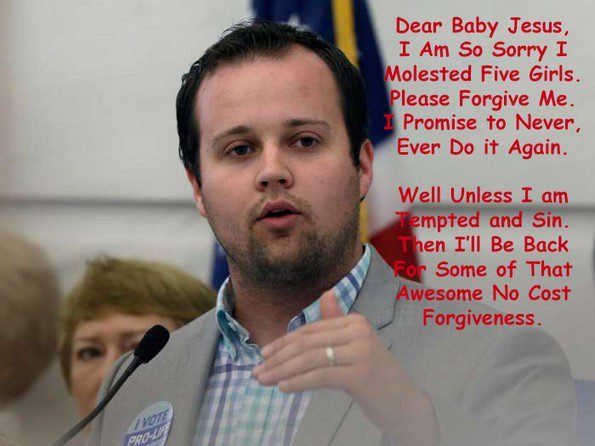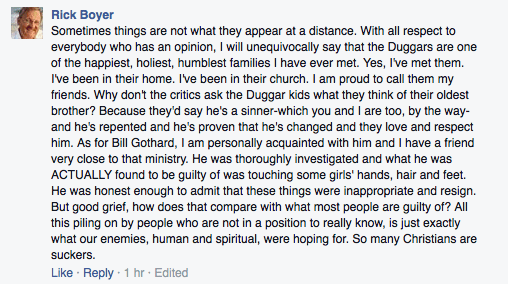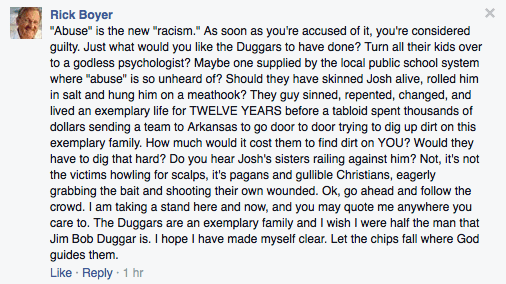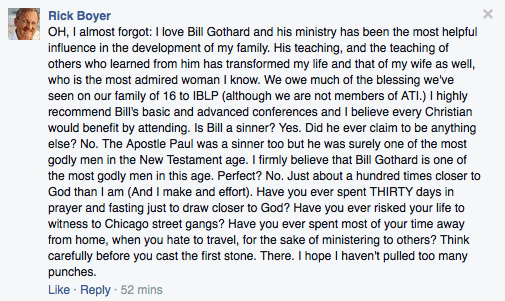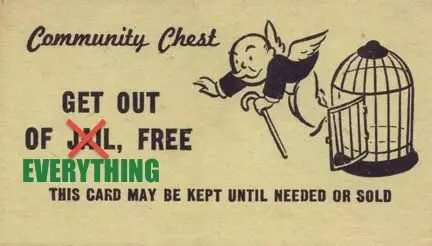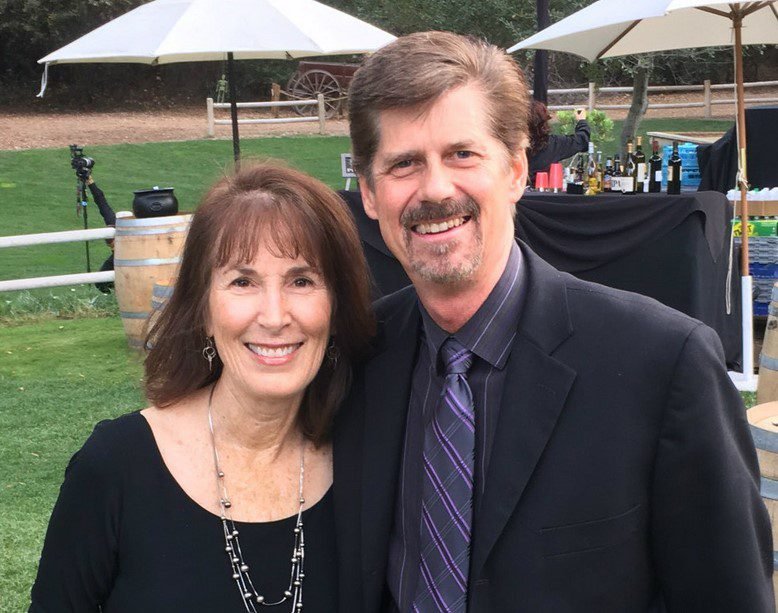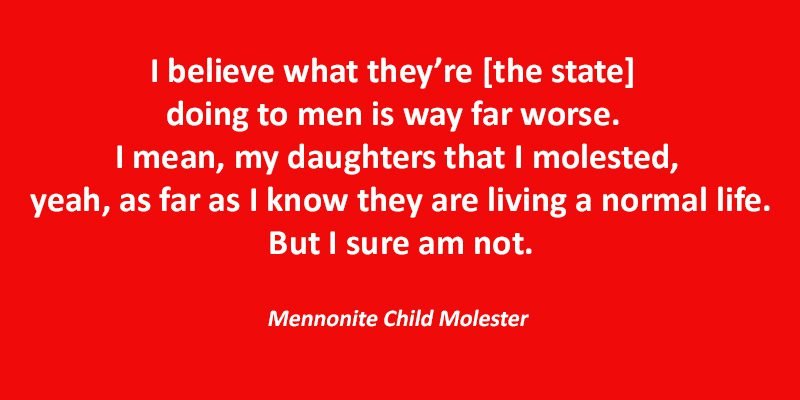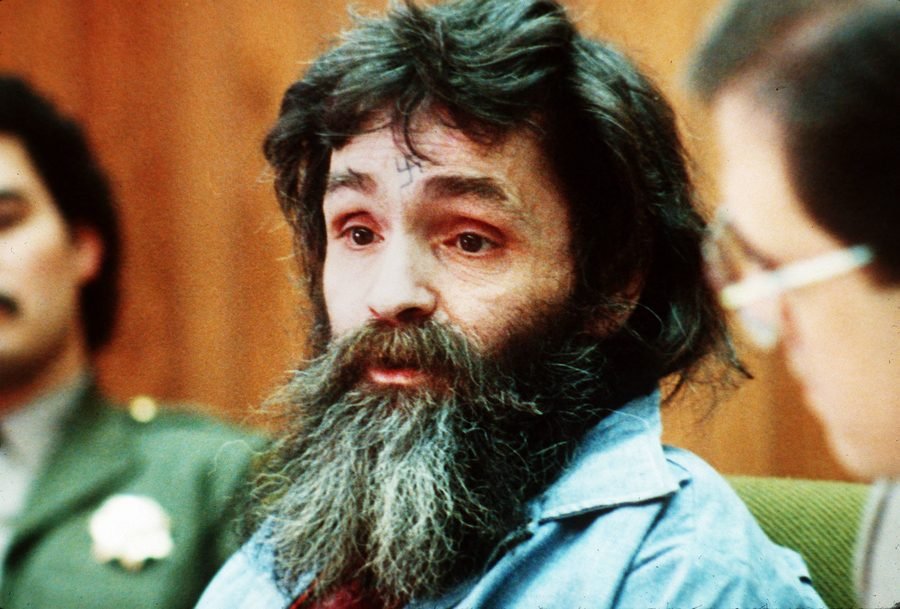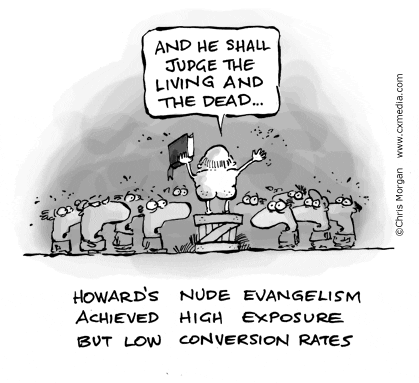
Several years ago, I wrote a post titled J.A. Medders Asks: What Do You Think Jesus is Doing Right Now?.
As I read the comments on this post, I had thoughts about how similar multi-level marketing (MLM) programs are to the various methods and programs Evangelicals use to evangelize people they deem unsaved/lost/unregenerate and headed for hell. This post will detail these similarities.
From 1995-2002, I pastored Our Father’s House in West Unity, Ohio. During my tenure at this church, I had to deal with well-intentioned members and Christian friends who tried to recruit me into their MLM programs. I was an attractive candidate due to the fact that I had a name-filled Rolodex that could be mined for new marks. Always polite and respectful, I never said NO, so this made me an easy target for church members who were involved with selling everything from Amway to long-distance telephone service.
One day the telephone rang and it was Brother Bob (names changed to protect the guilty) calling to ask if he could come over and talk to me about something that he was SURE I would find interesting and exciting; an opportunity to help other people and make money too. I thought, Not again, but not wanting to upset Brother Bob, I said, sure, when would you like to come over?
The next night a new Cadillac pulled into our driveway. Unbeknownst to me, Brother Bob had brought someone else with him. Great, I thought, now I have to deal with Brother Bob AND a stranger. As they came onto our front deck, I opened the door, and putting on the biggest I love Jesus smile possible, I invited them into our spacious, palatial 14’x70′ home on wheels.
Brother Bob was wearing Sunday-go-to-meeting clothes, while the intruder who came with him looked like he stepped out of the pages of a fashion catalog. After trading pleasantries, I invited Brother Bob and the now-I-know-your-name stranger into our expansive seventy-square-foot dining room. Brother Bob sat on one side of the table, I sat on the other side, and the stranger — let’s call him Dick — sat at the head of the table.
Dick relaxed into his chair, putting both arms on the table with hands clasped. In doing so, I couldn’t help but notice his Rolex watch and large diamond ring. These accessories were a perfect match for his calendar model look. From this point forward, Brother Bob didn’t say another word. Dick began talking to me about wants, needs, and desires, focusing on the accrual of wealth and material goods. At this point, he had not yet told me WHY he and Brother Bob were there. Having evangelized hundreds of people over the years, I knew Dick was trying to make me think that we were friends and that we had common wants, needs, and desires. He regaled me with stories about how his standard of living had mushroomed since he joined — are you ready? drum roll please — AMWAY.
Dick asked if I had ever heard of AMWAY. I told him I had, but that didn’t stop him from giving me a well-rehearsed speech about the history and wonders of AMWAY. After thirty minutes or so, Dick thought it was time to close the deal. He asked me if I wanted to earn more money and improve my standard of living — offensively assuming that there was something wrong with my current lifestyle. Dick reiterated all that Amway had done for him, sure that I would want the same things. Imagine his surprise when I told him that I really wasn’t interested in accumulating material goods.
Dick had said he was a Christian, so I was somewhat surprised that he didn’t know that the Bible said:
Lay not up for yourselves treasures upon earth, where moth and rust doth corrupt, and where thieves break through and steal: But lay up for yourselves treasures in heaven, where neither moth nor rust doth corrupt, and where thieves do not break through nor steal: For where your treasure is, there will your heart be also. (Matthew 6:19-21)
Love not the world, neither the things that are in the world. If any man love the world, the love of the Father is not in him. For all that is in the world, the lust of the flesh, and the lust of the eyes, and the pride of life, is not of the Father, but is of the world. And the world passeth away, and the lust thereof: but he that doeth the will of God abideth for ever. (1 John 2:15-17)
I shared with Dick my view of wealth and material goods, and it became quickly clear to him that I was NOT a prospect for AMWAY. Dick quickly ended his attempt to hustle me, saying to Brother Bob that it was time for them to go to their next appointment. I shook hands with them, walked them to the door, and off into the night they went looking to suck the blood out of other friends of Brother Bob.
Over the course of fifty years in the Christian church and twenty-five years in the ministry, I knocked on the doors of thousands of homes as I followed the Bible mandate to preach the gospel from house to house. My goal, regardless of the church I pastored, was to knock on the doors of every home in the community, introduce myself, and, if possible, share the gospel. I also encouraged church members to get me into the homes of their lost loved ones so I could share with them the wondrous good news that Jesus Saves!
I believed throughout my years in the Christian church that every person in the world needed to hear the gospel. While my fervor waned in later years, I still considered it my duty and responsibility to put a good word in for Jesus whenever possible. It always troubled me that OTHER Christians (and pastors) didn’t seem as bothered as I was about the lostness of their family, friends, and neighbors. Despite hearing and knowing the gospel, most church members showed little interest in getting others saved. I suspect most members viewed me as some sort of hired gun trained in the art of winning souls. Content to invite the unsaved to church so they could hear me preach, church members busied themselves with building a kingdom on this earth. No matter how often I attempted to raise an army to wage war against sin and the devil, most members were content to let me and a handful of other zealots do all the evangelism.
Think for a moment about soulwinning Evangelicals and the preachers of the various MLM gospels. The methodology, techniques and promises are quite similar:
- Both attempt to befriend people in hopes of getting them to buy what they are selling.
- Both attempt to manipulate emotions in hopes of making people sympathetic to their sales pitch.
- Both attempt to bolster their sales spiel with stories of how wonderful their lives are since getting saved/joining MLM program.
- Both attempt to appeal to prospective customers with promises of a better life.
- Both promise lives of meaning, purpose, and helping others.
- Both attempt to impress on people the importance of making an immediate decision.
- Both leave literature if people want to think about it or are unwilling to make an immediate decision
I am sure there are other connections. If you think of any, please share them in the comment section.
I am sure that Evangelicals will object to how I have painted their evangelistic efforts, but the fact remains Evangelicals are salespeople with a product to sell: forgiveness of sin, salvation, and a home in Heaven. This product purportedly offers purchasers joy, happiness, meaning, and purpose. The difference between what Evangelicals are selling and what the MLM zealots offer is that Evangelicals attempt to sell an invisible product that may not pay off until after death. Those who buy into the Jesus Saves® program must exercise faith, believing that, in the end, the multi-level marketer in the sky — Jesus — will move them to the top of the MLM pyramid, granting them a beautiful new mansion along streets of pure gold. With AMWAY, at least, converts can — in this life — judge the quality and truthfulness of its claims. This is why most people drop out of MLM programs, while most Evangelicals stay in their program until the end. Imagine what might happen if people required Jesus’ soul-saving MLM program to pay out BEFORE death. Why, most people would abandon Evangelical churches in short order.
As long as Evangelical churches promise things that can only be gained AFTER death, people will hang on, hoping that after their demise, they will cash in their eternal lottery ticket. While religion certainly has (for some people) utilitarian value, I do wonder if people would spend time going to church, giving their money, and attempting to live according to the teachings of an ancient religious text if there were no divine payoff.
Think back to your Evangelical days. If there was no life after death, no eternal reward, would you have been a Christian? Would you have lived as you did? If this life is all there is, how differently would you have lived your life? Please share your thoughtful ruminations in the comment section.



